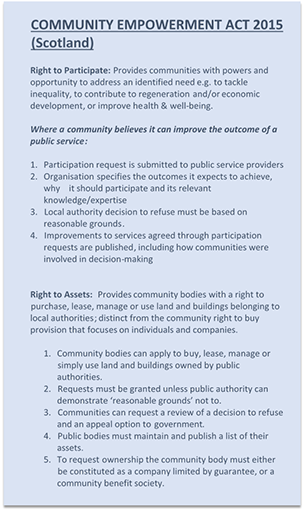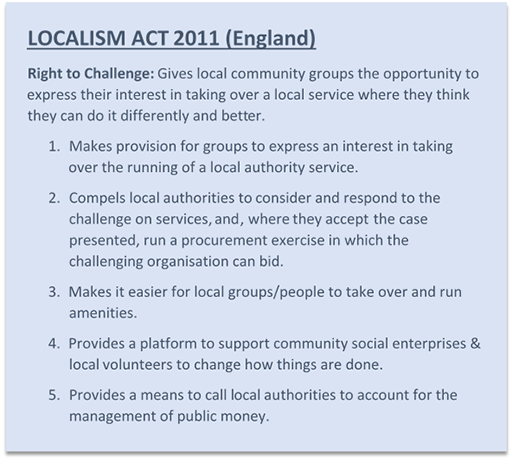1.1 The principles and rights of community empowerment
In addition to defining what community empowerment is, it is also worth reflecting on the key principles underpinning its practical application. Ersing (2003) argues that the practice of community empowerment can be summarised by three key principles, namely: building the competence or capacity of local residents and groups; providing opportunities for residents and local organizations to collaborate as change agents in resolving problems; and the use of advocacy and community or social action as change strategies to promote community well-being.
Within a UK context, the practice of community empowerment is arguably most developed in Scotland. Scotland’s 2015 Community Empowerment Act [Tip: hold Ctrl and click a link to open it in a new tab. (Hide tip)] outlines a number of key rights which local communities can claim:
In a similar vein, the 2011 Localism Act in England highlights the importance of the right to challenge as being crucial to community empowerment.


